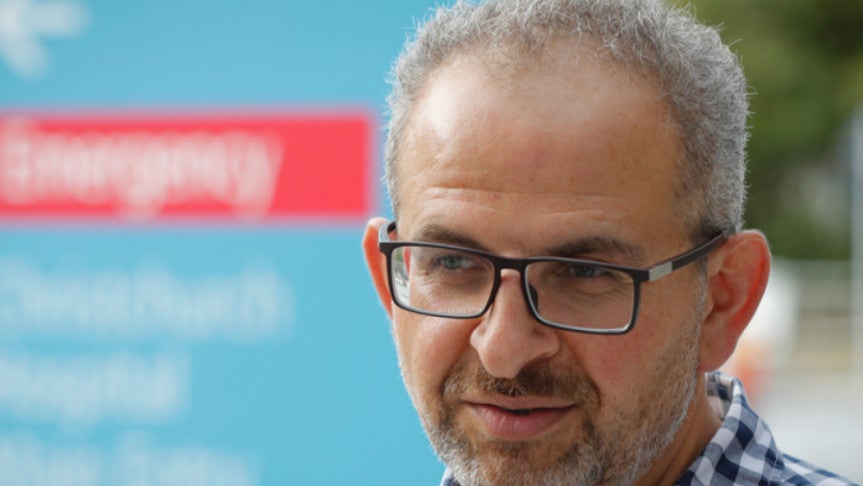‘My heart fell’ says New Zealand surgeon who treated girl, 4

Christchurch: As soon as vascular surgeon Adib Khanafer received the call March 15, he started running toward the operating theater at Christchurch Hospital. At that point, he had no idea a white supremacist had slaughtered 50 people. But he could hear an urgency in the request for help.
‘When I walked in, I found a young girl, a 4-year-old, on the table, with three pediatric consultants working on her trying to stop the bleeding,’ he says. ‘So this was a shock for me really. I just could not believe what I was seeing.’
Khanafer, who is Muslim and knew some of those killed in the attacks at two Christchurch mosques, says he typically fixes veins and arteries on adults in controlled environments. Now he was confronted with a child suffering gunshot wounds so severe she’d been in cardiac arrest for 30 minutes before stabilizing.
‘My immediate reflex is to think of my kids. I have four kids,’ he says. ‘My heart fell. I just couldn’t believe I’m in that situation.’
The girl was the youngest victim to be hospitalized after the attacks. A 3-year-old boy, Mucaad Ibrahim, died in the Al Noor mosque and was buried in Christchurch on Friday.
Khanafer knew what procedures he needed to perform, he says, but he called in a colleague anyway, both to cast a second pair of eyes over his work and for emotional support. After several hours, he finished the surgery. He hugged his colleagues and cried.
The operation was successful, although the girl remains in critical condition, and has since been transferred to a children’s hospital in Auckland. Khanafer next sought to reassure the girl’s father, who was also shot and injured in the attacks.
‘He was very distressed. He could not believe it,’ Khanafer says. ‘He started to describe to me what happened when he picked her up. I said, ‘This is now behind us. She’s good. She’s stable. She’s going to go to the best place in the country. So you need to take it easy and concentrate on you getting better.’’
Khanafer says he’s hopeful the girl might be released within a few weeks. It has made everything he has done in his career over the past 35 years worth the effort, he says.
‘This is the thing I will remember forever,’ he says. ‘I am hoping that girl walks out of the hospital, and then I’ll be very proud.’
Khanafer says the attacks deeply affected his family. He knew a colleague and a patient who were killed, and his wife knew many more people at the Al Noor mosque who died.
‘The hardest part for us is it happened in our church,’ he says.
In the days after the attacks, his teenage daughter, who was out of town at a sports tournament, texted his wife and suggested she remove her hijab, in case she, too, became a target.
‘We got over that,’ Khanafer says, adding that the support he’s had from colleagues and the Christchurch community has been overwhelming. He says he’s proud of the leadership shown by Prime Minister Jacinda Ardern, who declared Thursday that ‘military style’ semi-automatic weapons would be banned.
In addition to the 50 people who died in the attacks, 48 others were hospitalized. Of those, 27 remain at Christchurch Hospital, including five in critical condition. Two more are in Auckland: The young girl and her father, who was transferred there to be closer to her. He remains in stable condition.

 AP/UNB
AP/UNB




